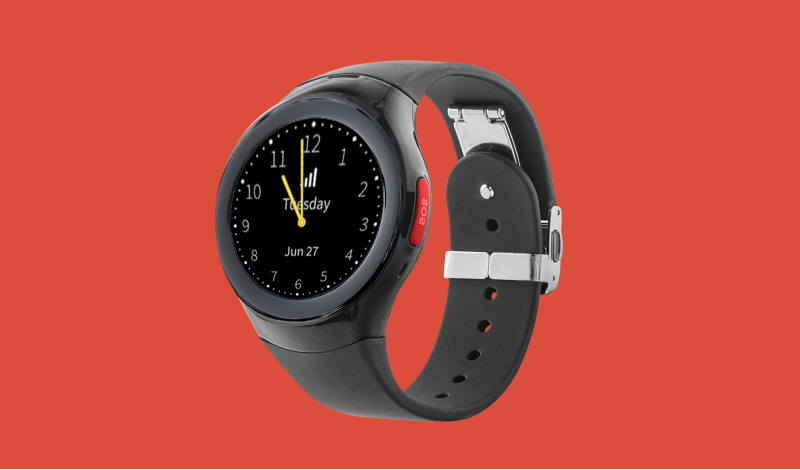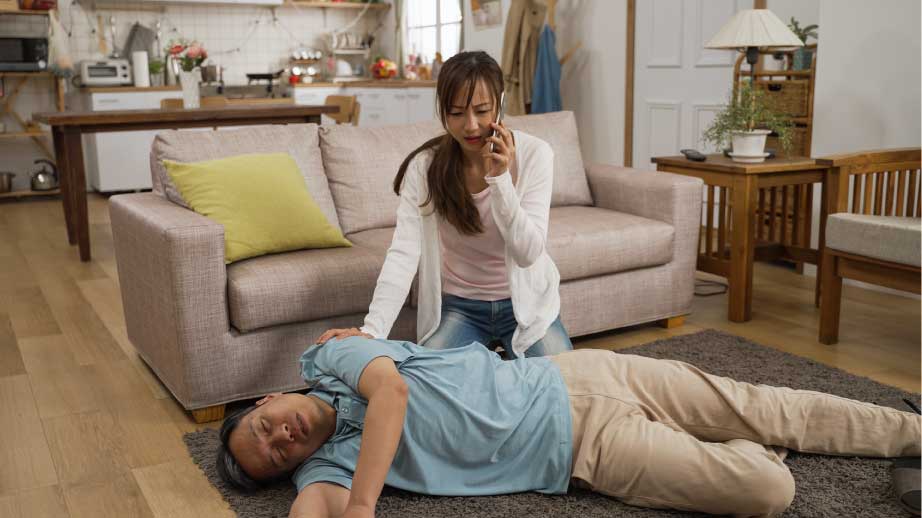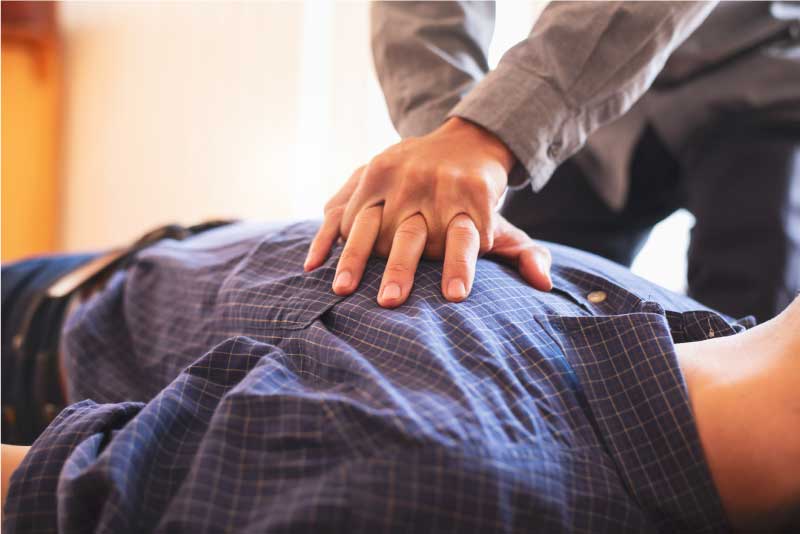What If My Loved One Falls And Is Unconscious?
February 16, 2023
For seniors and their loved ones, even a “minor” fall could be a warning sign of health and mobility issues that need to be addressed before a more severe fall happens. The quality of life impact of a severe fall can be devastating to seniors who cherish their independence.
If the worst happens, and your loved one is unconscious after a fall, do you know what to do? Here are four common senior fall situations and suggestions for administering emergency care.
#1: My loved one fell and seems dazed, but not unconscious.
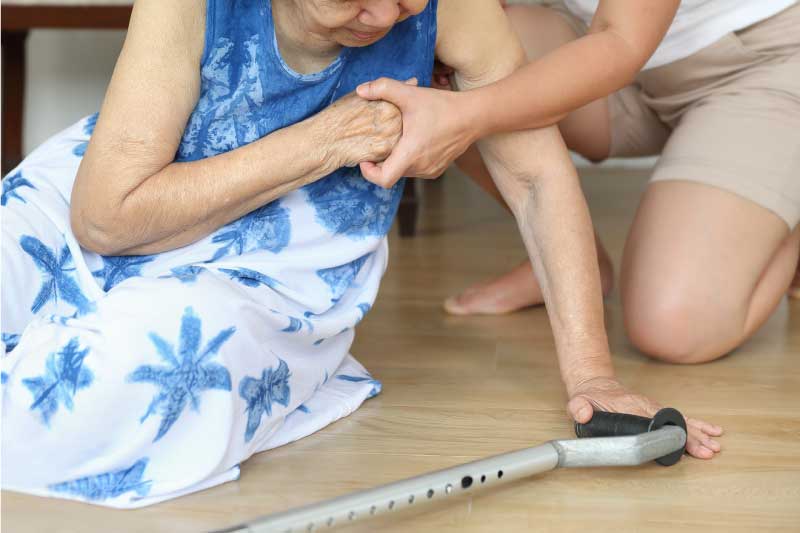
Don’t panic, but take the situation seriously.
- Take your time. Give the person time to catch their breath. Don’t try to pull them upright immediately.
- Check for injuries. Is there any visible swelling, bruising, or signs of broken bones? If so, call 911 for help.
- Help them up. Encourage them to slowly sit up and then stand. Provide assistance if needed, but it’s best if they move at their own pace. Someone may not realize they’re injured until they try to stand; if you try to pull them upright, you could make the injury worse.
- Contact the doctor. If there’s no visible reason for the fall (tripping over a pet or slipping on a wet floor, for example), contact the primary care physician.
Even a “minor” fall can be a warning sign of a more serious fall in the future. Your loved one may have eyesight problems, need a medication adjustment, or an undiagnosed health condition. Untreated hearing impairment can also increase fall risk.
#2: My loved one suffered an injury from a fall and is unconscious and bleeding.
This is definitely a serious and scary situation.
- Call 911. Provide the dispatcher with information about your loved one’s age, physical condition, medications, and/or chronic health conditions. First responders need that to provide the best level of care.
- Treat the wound. Apply moderate pressure to the wound to control bleeding. If the bleeding is in an arm or leg and the bleeding is severe, apply a tourniquet while waiting for first responders.
- Elevate the wound – unless it’s a head wound.
#3: My loved one fell and is unconscious, but breathing.
- Call 911. Give dispatchers as much information as possible about the patient’s condition, medications, and medical history.
- Check for injuries. Look for bruising, visible swelling, cuts, bleeding, or other issues that need immediate attention.
- Recovery position. If there are no visible injuries, but the person remains unconscious, gently move them into the recovery position. This helps the person breathe and helps keep the person from aspirating fluids from the nose or mouth.
This graphic from the Harvard Medical School shows how to safely move someone into the recovery position while you wait for first responders:
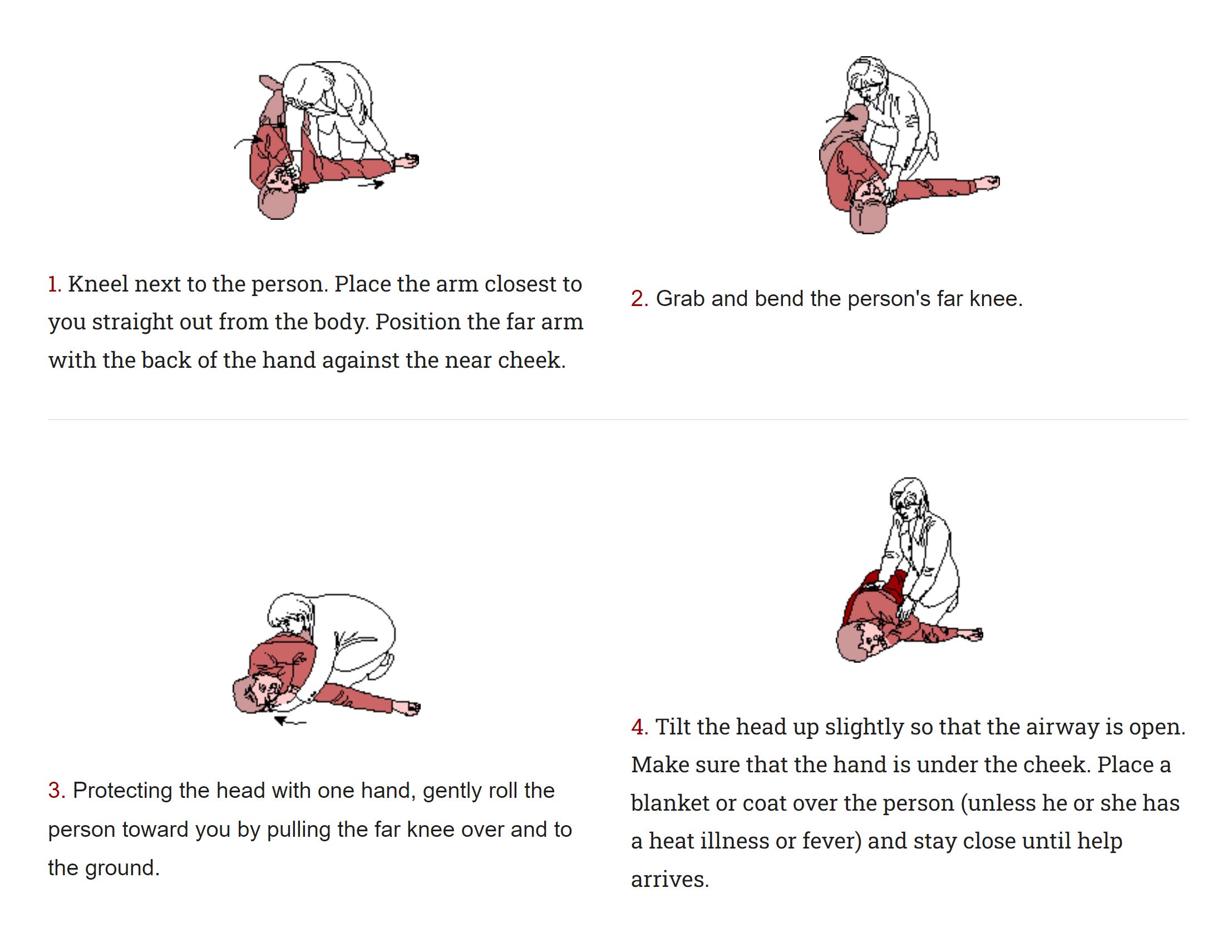
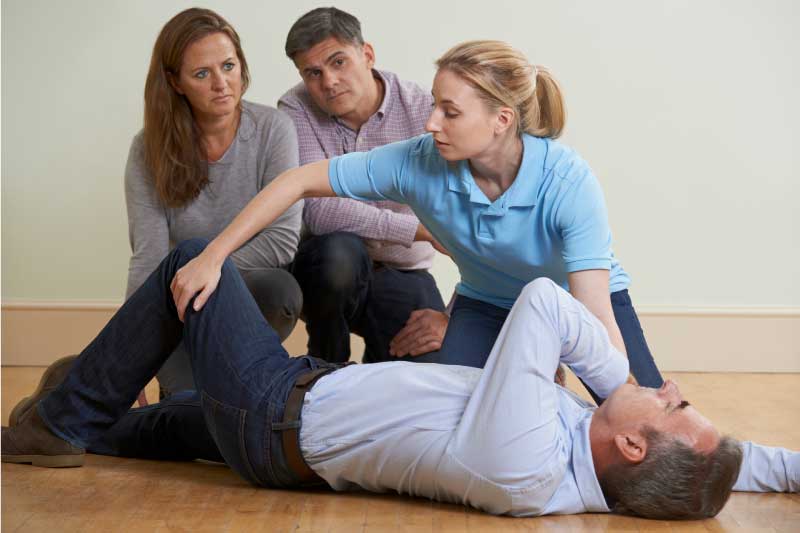
#4: My loved one fell and is unconscious and not breathing!
Take a deep breath. Try to stay calm, but move quickly. Some shallow breaths are easy to miss, so you may think they aren’t breathing. Tilt the head back and look and feel for breaths. A small mirror can help you detect breathing because it will fog up.
- Call 911 immediately. Give the dispatcher as much information as possible about the patient’s condition and medical history. Prepare to start CPR.
- Check airways. Look for obstructions in the nose and mouth that can impede breathing. Remove them if you can.
- Start CPR. Everyone should have formal CPR training, but the 911 dispatcher can usually talk you through the process.
This video from the American Red Cross shows how to perform hands-only CPR.
Senior Falls are Common – and Dangerous
Falls can be serious for people of any age, but seniors tend to have more fall-related injuries than other age groups. In 2018, 28% of seniors aged 65 and over reported falling, and 8.4 million of them were injured. According to the CDC, at least 300,000 seniors (most of the women) are hospitalized with hip fractures each year. Many falls occur at home and are preventable. Here are some tips to prevent senior falls at home.
It’s important to get help ASAP, but what if you or a loved one falls and there’s nobody there to help?
A medical alert system with fall detection can help keep an accident from turning into a tragedy.
Bay Alarm Medical offers optional fall detection with all of our home and mobile medical alert systems.
If you or your loved one falls and can’t push the help button or call for help via a wall button, the system will alert the monitoring center. An operator will quickly dispatch first responders and advise them about any pre-existing medical conditions, allergies, possible drug interactions, and instructions on how to enter your home. The paramedics arrive with the information they need to provide immediate care.
Every minute, every second counts in a medical emergency. Our affordable, reliable medical alert systems help you stay safe at home and on the go. Contact us at 1-877-522-9633 or chat with us online to learn more.



